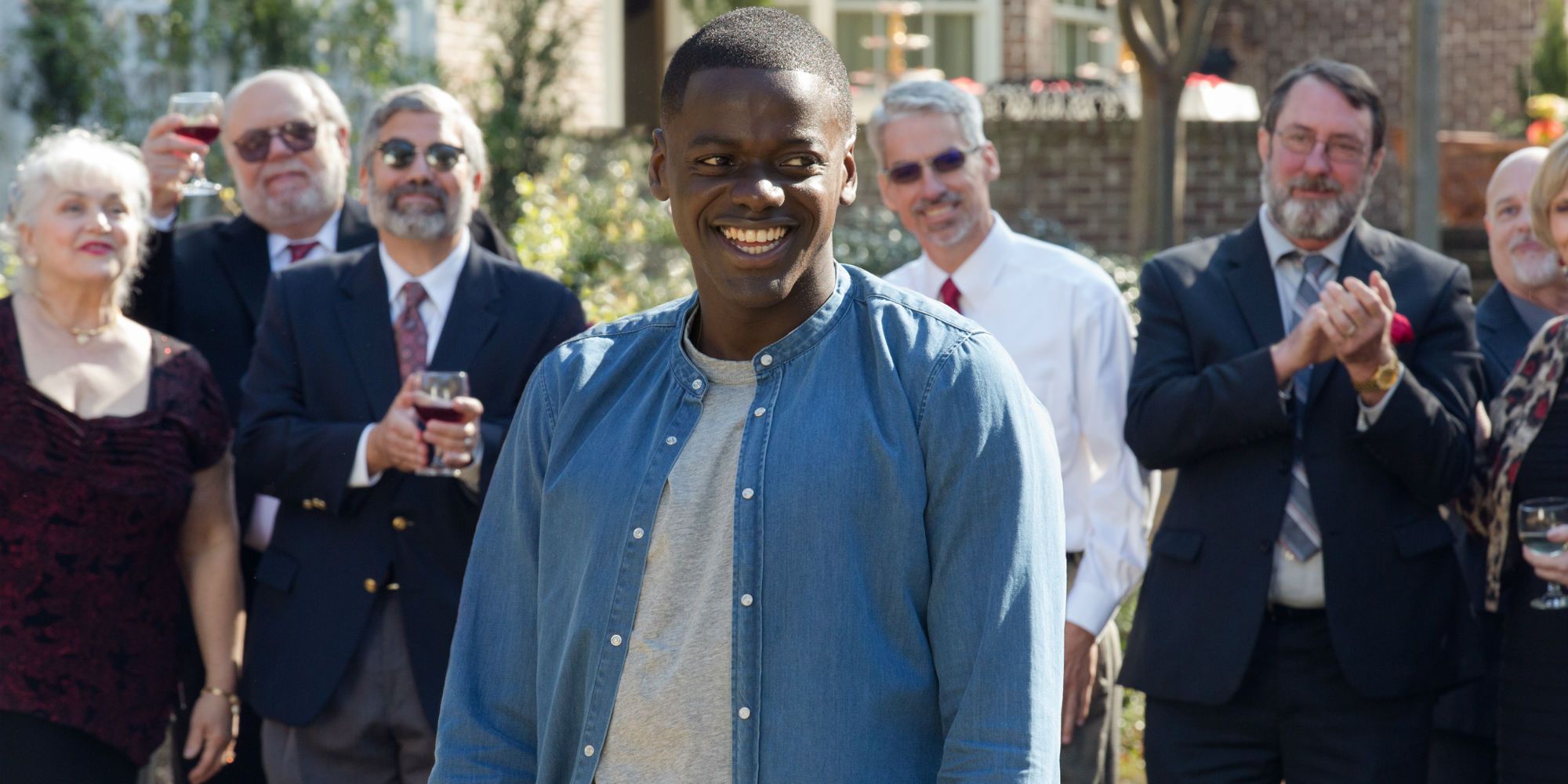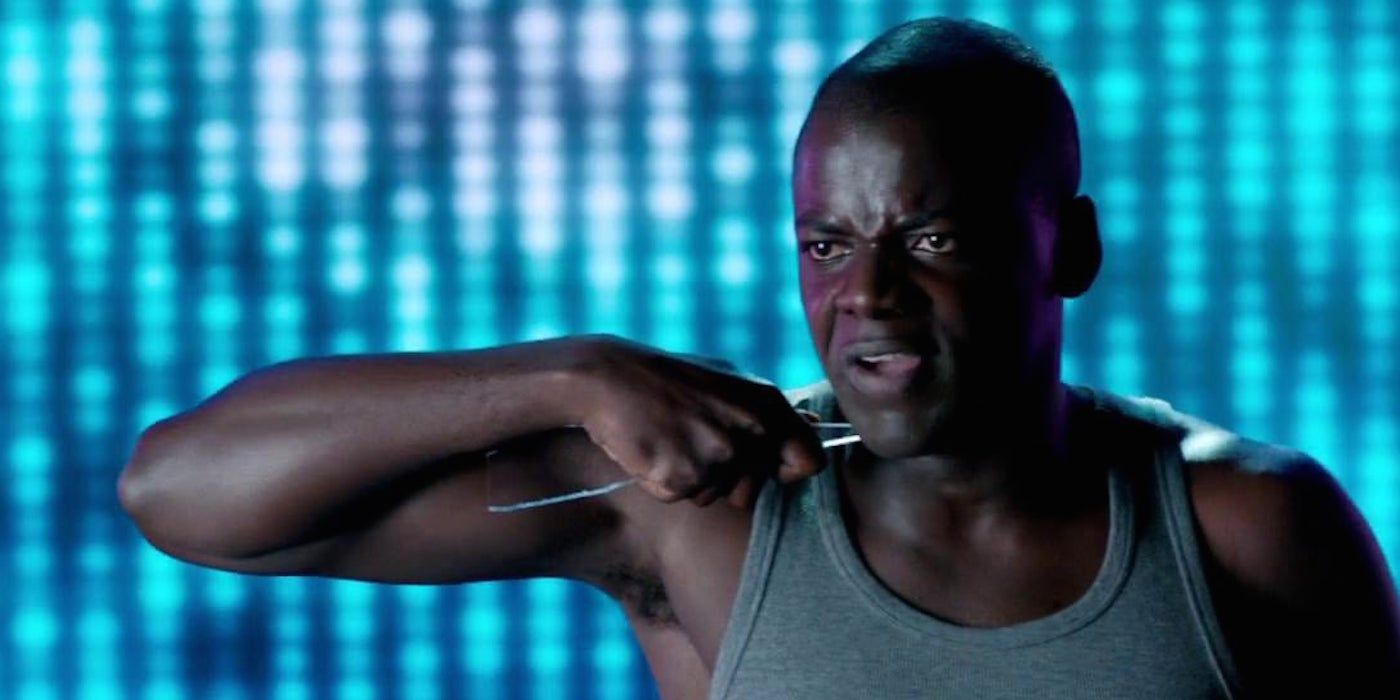Jordan Peele's Academy Award winning debut film, Get Out, owes a debt of gratitude to Black Mirror, from which the director took inspiration and forged a critical connection.
Get Out and Black Mirror share a few common factors; both evoke a feeling similar to classic episodes of The Twilight Zone, which Peele also got involved with when the series was rebooted for CBS All Access in 2019. The Twilight Zone, which was created by Rod Serling and premiered in 1959, showed how science-fiction and horror elements can cross with political savvy and comment on social and sociopolitical factors like class, race, and humanity itself. Peele's work naturally skews toward political commentary, as the horror genre has always done, and his frank discussions of race and the hardships faced by the Black community have been put front and center both with Get Out and Peele's sophomore movie, Us.
Black Mirror is a standalone anthology series like The Twilight Zone that was created by Charlie Brooker. In recent years, the series has found a home on the streaming platform, Netflix. Though Black Mirror is largely a commentary on how technology will eventually be the root of humanity's downfall, Peele took something very specific from one episode that led into making Get Out a masterpiece. On the surface, Get Out is strikingly different from the technological world of Black Mirror, but Peele was more interested in the power in front of the camera than the content itself.
Jordan Peele Picked Daniel Kaluuya After Watching Black Mirror
In series one, episode 2 of Black Mirror, "Fifteen Million Merits", actor Daniel Kaluuya gave an astounding and gut-wrenching performance as Bing. Bing has inherited a large sum of "merits" from his late brother, which he offers to a young woman, Abi (Jessica Brown Findlay), after he thinks she has a promising talent with singing. The society depicted in "Fifteen Million Merits" is one that reduces human beings to what they're capable of earning—"merits", which are society's currency—by pedaling stationary bicycles like rats in a wheel. The capitalism-driven society sees normal people—those who are relegated to pedal incessantly for luxury or even the most utilitarian lifestyle—longing for a better life much like what many in the working class aspire to achieve.
"Fifteen Million Merits" takes from both the traditional concept of the "American dream" and the overabundance of reality television shows and game shows. Bing and Abi are put in a position where Abi's dreams of stardom are crushed and exchanged for a life doing adult film and Bing is forced to accept that there's likely not a better future for someone like him in a cruel, materialistic society. This leads to an impassioned monologue performed by Bing where he confronts the judges who doomed Abi to her new career as an adult film star that causes them to give him his own TV show; this doesn't necessarily equate to his happiness. Jordan Peele stated that it was Kaluuya's monologue that made him interested in casting the young actor—still early in his days of being discovered—as Chris Washington in Get Out.
Kaluuya's intensity in "Fifteen Million Merits" translated incredibly well to Chris' character in Get Out. Not only was he the movie's driving force, but his character goes through an entire range of human emotion. From his early skepticism after meeting his girlfriend's parents out at their stately, country home for the first time—her father stereotypically comments that he would have voted for Obama a third time—to the slow recognition that something is going very wrong, Kaluuya brought a unique level of intensity to Peele's film. Get Out hinged on a series of highly vulnerable, emotional performances from the actors, but particularly from Kaluuya, who became the face of the movie literally as well as figuratively. From the width of his eyes during his first journey to the "Sunken Place" to the stunning finale where he fights for his own survival against all odds, there's no doubt that Peele made a perfect choice of star.


